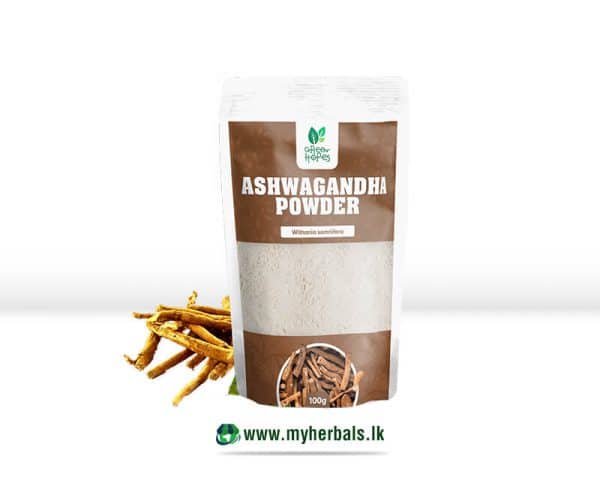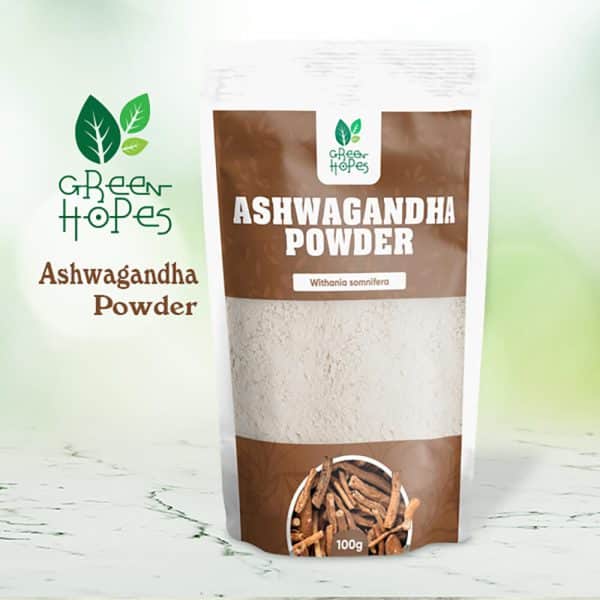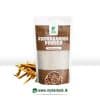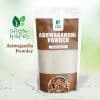Menu
Edit Content
Product Categories
Edit Content
Product Categories
Edit Content
Product Categories
Product Categories
Product Categories
Product Categories




Rs. 1,050.00


Size:100g
According to Ayurveda, female infertility can be cured by drinking a concoction of cow’s milk and powdered amukkara potatoes. The infusion of amukkara is also beneficial for healthy pregnancy, asthma, colds, and coughs. Additionally, this plant’s seeds and fruits have anti-coughing properties.
In stock (can be backordered)
Ashwagandha (Withania somnifera), also known as Indian ginseng or winter cherry, is an evergreen shrub native to India, Africa, and the Middle East. It has been used in traditional Indian medicine for centuries for its purported health benefits. Ashwagandha is classified as an adaptogen, a substance that is believed to help the body cope with stress.
Synonyms
Botanical classification
Description
Ashwagandha is an evergreen shrub that grows to about 3-4 feet tall. It has small, green leaves and yellow or orange flowers. The root of the plant is the most commonly used part in traditional medicine.
Active compounds
The main active compounds in Ashwagandha are:
Traditional uses
Ashwagandha has been used in traditional Indian medicine for centuries for a variety of purposes, including:
Scientific evidence
There is growing scientific evidence to support the traditional use of Ashwagandha for a variety of health conditions. Some of the most promising research suggests that Ashwagandha may be beneficial for:
Dosage
The typical dosage of Ashwagandha is 300-600 mg per day. Ashwagandha can be taken in powder form, capsules, or extracts.
Safety
Ashwagandha is generally considered safe for most people when taken in recommended doses. However, some people may experience mild side effects, such as stomach upset, diarrhea, and headache.
Interactions
Ashwagandha may interact with certain medications, such as sedatives and blood thinners. It is important to talk to your doctor before taking Ashwagandha if you are taking any medications.
Conclusion
Ashwagandha is a safe and effective natural remedy for a variety of health conditions. It is a powerful adaptogen that has been shown to have a wide range of health benefits.
Disclaimer
Please note that the information provided in this article is for informational purposes only and should not be construed as medical advice. It is important to talk to your doctor before taking any supplements, including Ashwagandha.
In Ayurveda, the Solanaceae (Solanaceae) plant genus Withania somnifera is also known as Amukkara. Both Sri Lanka and western India are affected by this.
According to Ayurveda, women with infertility can be treated by ingesting a mixture of cow’s milk and powdered amukkara potatoes.
Additionally helpful for proper pregnancy, asthma, colds, and coughs is ashwagandha powder or infusion. This plant also has anti-coughing qualities in its fruits and seeds.
According to Ayurveda, amukkara tubers are excellent for treating swelling and joint pain, and several herbs have been created based on the herb-fragrant plant that are useful for treating a variety of illnesses.
In addition to the decoction, tablets, honey, capsules, and drinks made from amukkara, the herb is frequently used as medicine.
There are a lot of fake medications on the market that are created by combining Valpenela and Amukkara. Likewise, horseradish powder, oil, etc. Today and are a common herb in the area.
The sale of these drugs, along with goods prepared in pharmacies and supermarkets, can be seen as an excellent solution to the busy lifestyle and the challenge of finding these rare herbs.
Rs. 1,050.00


Size:100g
According to Ayurveda, female infertility can be cured by drinking a concoction of cow’s milk and powdered amukkara potatoes. The infusion of amukkara is also beneficial for healthy pregnancy, asthma, colds, and coughs. Additionally, this plant’s seeds and fruits have anti-coughing properties.
In stock (can be backordered)
Ashwagandha (Withania somnifera), also known as Indian ginseng or winter cherry, is an evergreen shrub native to India, Africa, and the Middle East. It has been used in traditional Indian medicine for centuries for its purported health benefits. Ashwagandha is classified as an adaptogen, a substance that is believed to help the body cope with stress.
Synonyms
Botanical classification
Description
Ashwagandha is an evergreen shrub that grows to about 3-4 feet tall. It has small, green leaves and yellow or orange flowers. The root of the plant is the most commonly used part in traditional medicine.
Active compounds
The main active compounds in Ashwagandha are:
Traditional uses
Ashwagandha has been used in traditional Indian medicine for centuries for a variety of purposes, including:
Scientific evidence
There is growing scientific evidence to support the traditional use of Ashwagandha for a variety of health conditions. Some of the most promising research suggests that Ashwagandha may be beneficial for:
Dosage
The typical dosage of Ashwagandha is 300-600 mg per day. Ashwagandha can be taken in powder form, capsules, or extracts.
Safety
Ashwagandha is generally considered safe for most people when taken in recommended doses. However, some people may experience mild side effects, such as stomach upset, diarrhea, and headache.
Interactions
Ashwagandha may interact with certain medications, such as sedatives and blood thinners. It is important to talk to your doctor before taking Ashwagandha if you are taking any medications.
Conclusion
Ashwagandha is a safe and effective natural remedy for a variety of health conditions. It is a powerful adaptogen that has been shown to have a wide range of health benefits.
Disclaimer
Please note that the information provided in this article is for informational purposes only and should not be construed as medical advice. It is important to talk to your doctor before taking any supplements, including Ashwagandha.
In Ayurveda, the Solanaceae (Solanaceae) plant genus Withania somnifera is also known as Amukkara. Both Sri Lanka and western India are affected by this.
According to Ayurveda, women with infertility can be treated by ingesting a mixture of cow’s milk and powdered amukkara potatoes.
Additionally helpful for proper pregnancy, asthma, colds, and coughs is ashwagandha powder or infusion. This plant also has anti-coughing qualities in its fruits and seeds.
According to Ayurveda, amukkara tubers are excellent for treating swelling and joint pain, and several herbs have been created based on the herb-fragrant plant that are useful for treating a variety of illnesses.
In addition to the decoction, tablets, honey, capsules, and drinks made from amukkara, the herb is frequently used as medicine.
There are a lot of fake medications on the market that are created by combining Valpenela and Amukkara. Likewise, horseradish powder, oil, etc. Today and are a common herb in the area.
The sale of these drugs, along with goods prepared in pharmacies and supermarkets, can be seen as an excellent solution to the busy lifestyle and the challenge of finding these rare herbs.



Shopping with us
අපේ ශරීරය තුල වකුගඩුවල ක්රියාකාරිත්වය කොයි වගේද ? වකුගඩු කියලා
ලෝකය පුරා ආයුර්වේදීය වටිනාකමක් සහිත ශාක බොහෝමයක් පවතින අතර ඒ
අප නොදන්නා නමුත් අපගේ ගෙවත්තෙහි වැඩෙන පුංචි පැලෑටි වලින් මහඟු
© Copyright [2019-2024] myherbals.lk | by MYHERBALS.LK (PVT) LTD